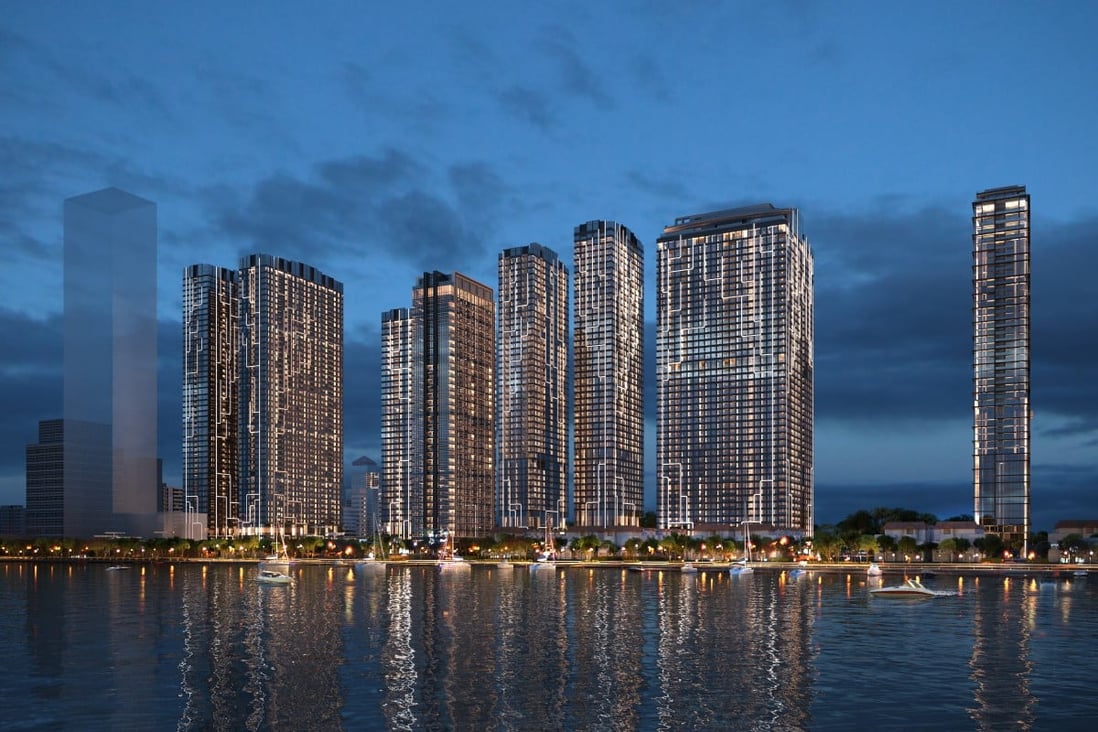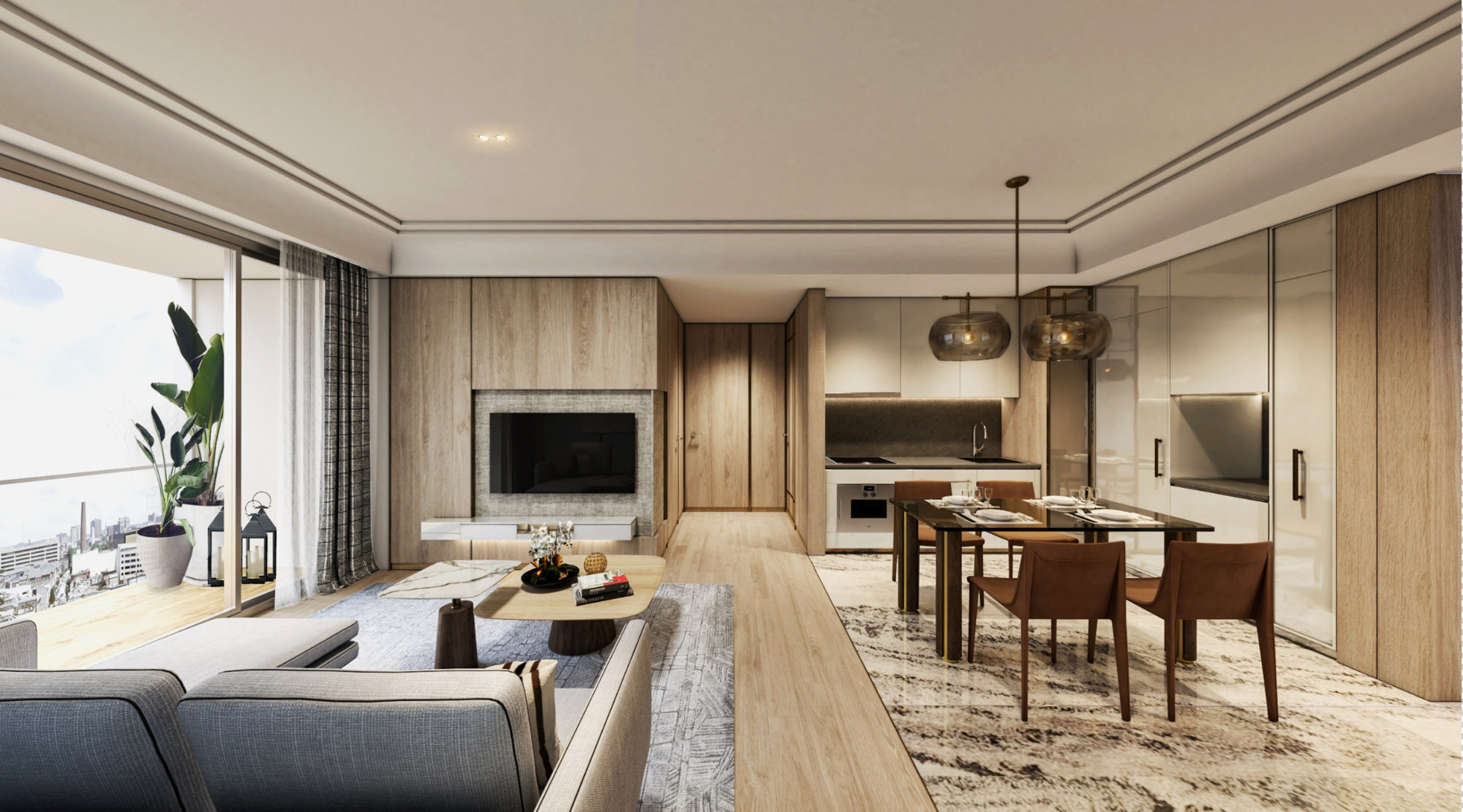
The US-based hotel operator Marriott International is making a foray into Vietnam’s branded residence segment, with the Southeast Asian nation’s property sector viewed increasingly favourably by international investors because of its stellar economic growth.
Developed by Vietnam’s Masterise Homes, the Grand Marina, Saigon, comprising eight residential towers with some 4,500 ultra-luxury units, is also Marriott’s largest. Spread over 10 hectares on the northern bank of the Saigon River in Ho Chi Minh City’s prime district, the mixed-use project also includes office and commercial components and an 850-metre waterfront promenade.
Hong Kong is serving as the global launch pad for the project, where the company is offering 72 units in the first tower at prices starting from US$888,000, according to Asia Bankers Club, which is marketing the property to its members. The first tower will be ready next year and the rest by 2024.
“There’s huge economic growth in Vietnam with gross domestic product of 6.9 per cent,” said Julian Wyatt, CEO of Masterise Property. “It’s just phenomenal. We’re seeing foreign direct investments into Vietnam in the area of US$21 billion ... We’re also seeing a lot of international trade agreements being signed. We’re very fortunate we’ve got a very proactive government changing a lot of policies to create a friendlier and easier business environment.”

Analysts said Vietnam’s residential and industrial property segments enjoy a symbiotic relationship where any growth in one is likely to spill over on to the other. Foreign executives deployed to Vietnam are likely to look for suitable accommodation, giving developers incentives to offer more residential options.
Vietnam is widely regarded as China’s rival in manufacturing. When US-China tensions escalated during the administration of former US President Donald Trump, many companies moved their production to the Southeast Asian nation to avoid higher tariffs. Vietnam also benefited from the coronavirus outbreak in China last year. As Beijing suspended manufacturing operations to stem the outbreak, it disrupted supply chains and made Vietnam a top alternative to China. Companies such as Apple, Nintendo, Samsung and many of its Asia-based suppliers have relocated some of their production or assembling capacity to Vietnam.
The worsening security situation in Myanmar is likely to further boost Vietnam’s manufacturing industry as the military’s power grab last month has seen several factories – mostly owned by Chinese investors – torched and damaged in the Hlaingthaya industrial zone in the commercial capital Yangon.
“The sad situation of Myanmar is still unfolding, but with the growing unease, Vietnam will present as an alternative,” said Alex Crane, managing director of Cushman & Wakefield Vietnam.
Marriott International is the world’s biggest player in the branded residences sector, according to Savills World Research. Of the 420 branded residence projects in 2019, it operated 100 across 25 countries, with brands such as Marriott, JW Marriott, Ritz-Carlton, St Regis and W representing one in every four projects globally. The Residences at W South Beach with 408 units is currently the largest Marriott-branded residence, according to Savills.
Actual foreign direct investment in Vietnam hit US$20 billion in 2020, a 2 per cent decline from the previous year, according to a report by the Hanoi Times. The slight investment decline amid the worst global recession in history suggests resilience and continued optimism on Vietnam’s economy.
“Vietnam has strong economic, demographic, political and geographical factors that has attracted large amounts of FDI in recent years and the relative success and stability of Vietnam in 2020 will certainly place Vietnam in a good position amongst manufacturers and companies,” said David Jackson, chief executive of property consultancy Colliers in Vietnam.
But the main story in Vietnam is the country’s growing wealth and the young population.
“The main driving forces for residential property are the strong demographic factors, such as large population, high proportion of young workforce, high urbanisation rate, and emerging middle class,” said Jackson.







